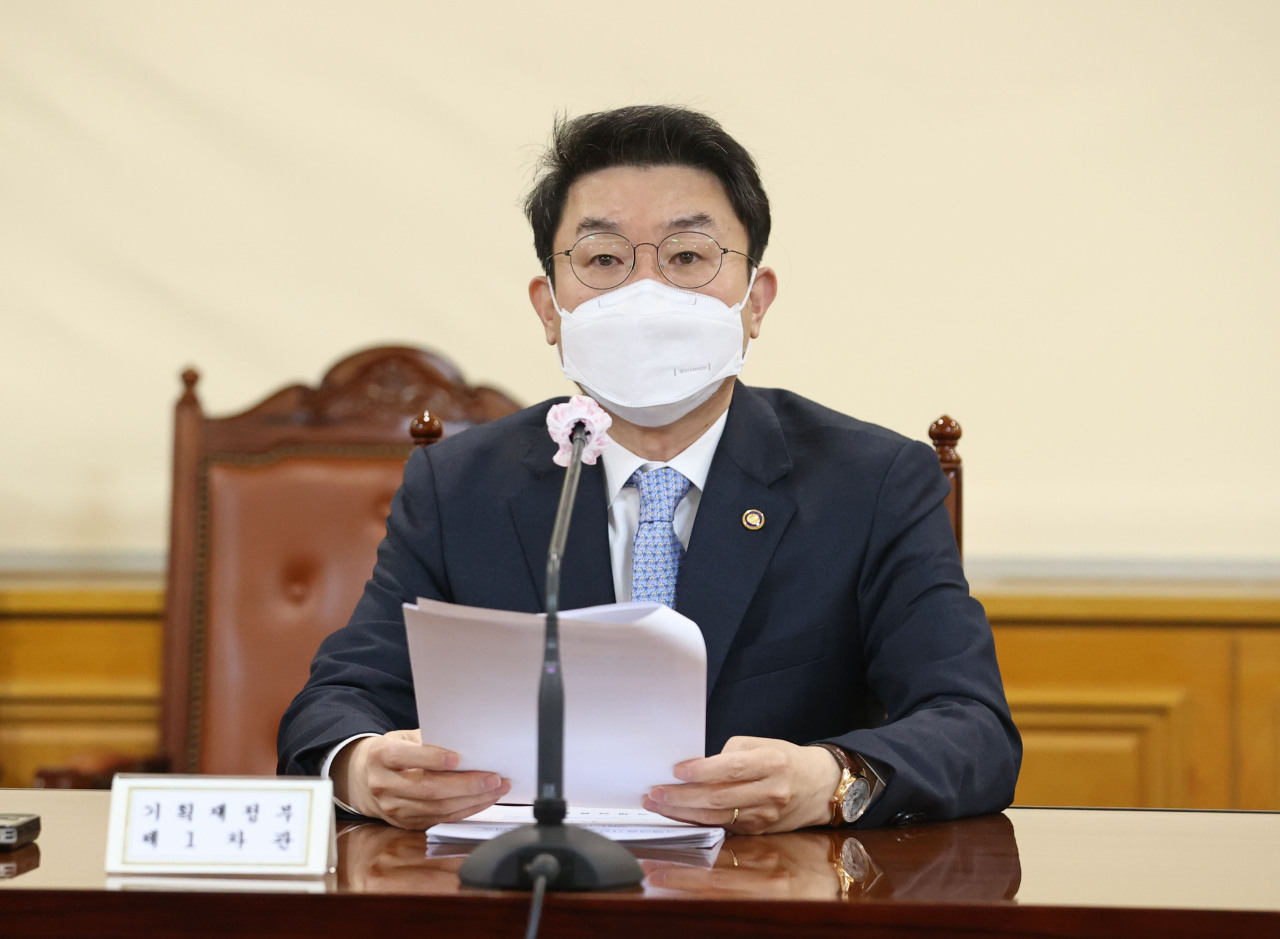 |
First Vice Finance Minister Lee Eog-weon (Yonhap) |
SEJONG -- The local financial market will not face a high-level volatility despite the news that US monetary policymakers will accelerate their exit from quantitative-easing, Korea’s senior officials expected Thursday.
At a meeting for macro economy and finance in Seoul, officials clarified that their prediction was based on Korea’s preemptive measures, involving hikes in the benchmark interest rate earlier this year.
First Vice Finance Minister Lee Eog-weon said that the possibility of the US Federal Reserve’s “tapering” -- a gradual ending of quantitative easing -- and possibly following rate hikes had already been reflected into the local market.
As a result, recent decision and remarks from the Federal Open Market Committee “would have limited impacts on the local financial market,” Lee said. “Uncertainty has been lifted, as the result of the FOMC meeting roughly coincides with expectations from the global financial market.”
On Wednesday, the Federal Reserve said it would speed up its tapering of bond buying. This suggests that Washington will advance the timing of the end of its quantitative-easing activities from June to March, local private analysts said.
Though the Federal Reserve kept its base rate untouched at the current 0-0.25 percent this time, it signaled rate hikes for three times throughout next year.
In the wake of the pandemic, US policymakers had sought to increase liquidity in the market by vigorously purchasing bonds, as part of its effort to boost the sagging economy. But recent remarks mean that they would actively reduce the bond purchase, which is dubbed “tapering,” given rapid bounce-back in economic indices.
Nevertheless, Vice Finance Minister Lee said the possibility of volatility could not be ruled out. He pointed out uncertainty from the omicron variant of COVID-19 and the default issue of China Evergrande Group.
“The government, if necessary, will carry out preemptive actions to stabilize the market,” he said.
The Bank of Korea had kept its benchmark interest rate at a record-low of 0.5 percent from May 2020 to August 2021.
As the central bank conducted rate hikes in August and November 2021 by 25 basis points, respectively, the rate has reached 1 percent since Nov. 25.
Some analysts say that Korean monetary policymakers have faced a dual role of handling all-time high outstanding household debt and the impact of US interest rate decisions.
By Kim Yon-se (
kys@heraldcorp.com)








